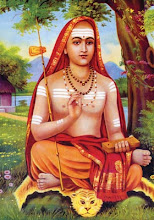I just finished a telugu book named “Neela Pendli” by Kavi Samrat. The story line is not difficult to guess and if I have to write the story I will probably finish it in no more than 250 words. But the author spent a whole book on the subject. A small introspection on this gave me a lesson on what literature should comprise of, especially in modern days where Prabhandhas and Kavyas may not be sold even for a ruppe (or a penny/dollar if you are an NRI).
I treat myself as Ekalvya Shishya of the eminent author, even though I don’t think I am as bad as Ekalavya. The lesson I learnt is regarding essential components of literature namely psychology and philosophy
Psychology:
It’s not really enough to tell a story for a writer. One should be in a position to read the psychology of people. Story must try to reflect the reality. It is only when the reader identifies himself/herself with character. Characters author creates are like his own children. He must understand them fully, how they react a specific situation and how they
think in a given scenario. If the author can capture the train of thoughts to finer details, it can help connecting the reader.
Say for example in the story Neela (lead character) gets introduced to Umapathi. Neela’s trains of thoughts revolve around if Umapathi has any other intentions than mere friendship and knowledge sharing to her. She also thinks if he wants to marry her etc., These thoughts are so natural for a young girl of marriageable age. I beg your pardon here, I was told today’s girls thinking is lot different and Viswanatha tried to reflect thinking of girls of his time. My personal feeling certain things still exist in today as well but we may refrain from confessing. Similarly Umpathi who likes Neela starts thinking about his chances of getting married to Neela and analyses his family situation etc., I can guarantee that that’s how I would think if I encounter an eligible girl in my life.
Philosophy:
Catching the pulse of audience is the preliminary step for making sure they listen to what author says. Author should now have discretion to say the ‘right’ thing and so prerequisite is author should know what is ‘right’. For knowing what is right, one needs to do lot of study. Even a knowledgeable person like Viswanatha studied history for few years before starting his novels on historical background. Intent is simple, One cannot afford to make mistake in works that may last forever.
So what is right? In Hindu Dharma, Vedas are the basis. There are Dharma Shastras that prophesize what is right and what is wrong. There are puranas which give examples of people who have followed Dharma. It is always recommended to follow these to arrive at what is right. Individual conscience must only supplement and not contradict the above texts. Even great Manu/Gautama in their dharma shastras mentioned that if at any point they contradict with Veda, it is taken that they are wrong. Reason is simple, Vedas are Rishis after contemplating each situation and making sure there are no perils. We through our thought may make mistake by presenting half baked truths.
Lets take a small example. These days many books/movies prophesize a statement “everything is fair in love and war”. I don’t know who coined this phrase but it has immediately become popular because it is a convenient excuse to all misdeeds we do. This is not supported by any of the texts I mentioned above. If one follows this literally, then it means “everything” including the recent acid attacks, rape, eloping, homicide, suicides are fair in love. But are they really?
So author must try to reflect the ultimate truth and not the half baked truth like the above.
Subscribe to:
Post Comments (Atom)

No comments:
Post a Comment